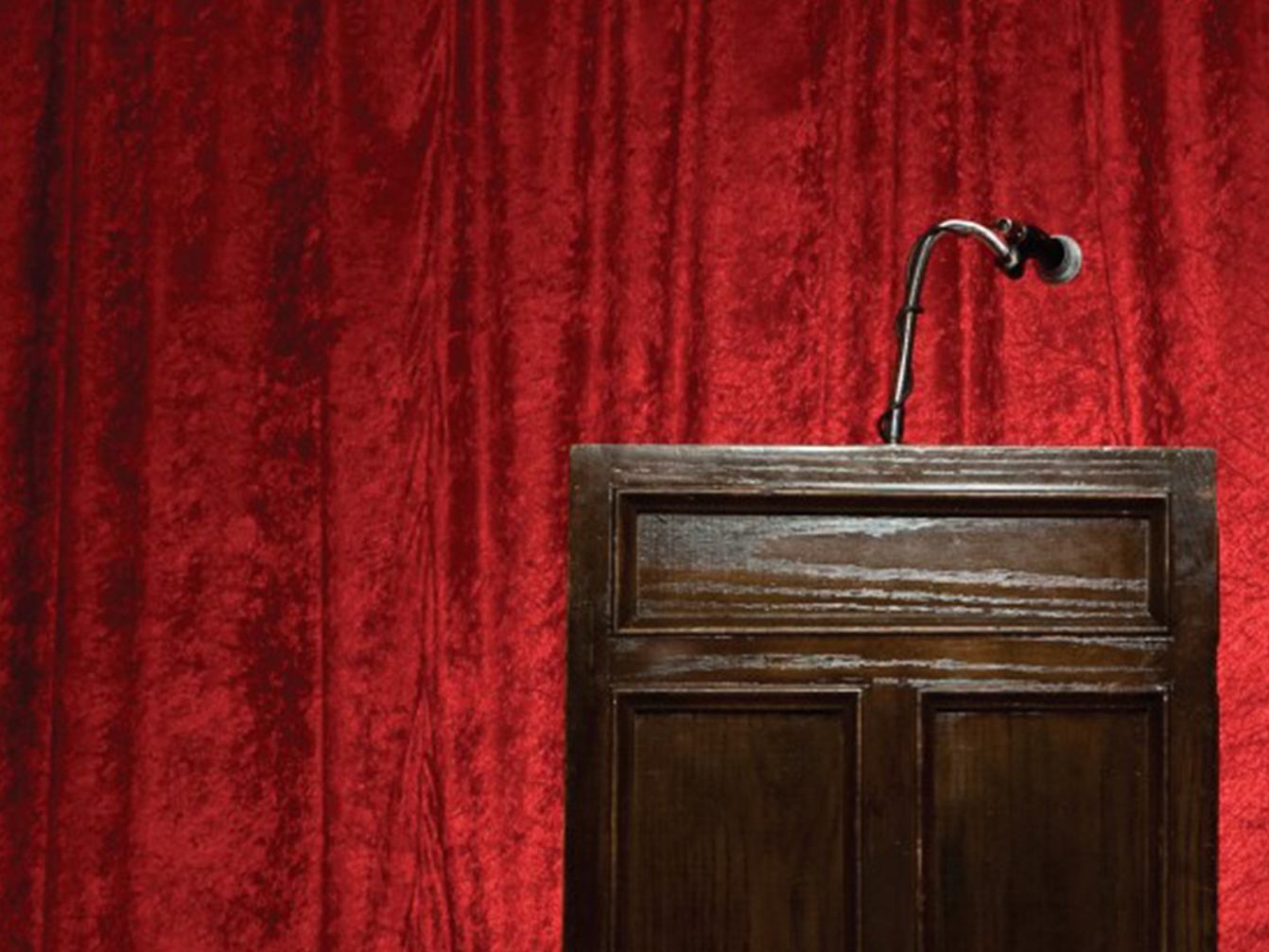The early months in the run-up to a General Election can often feature a period of shadow boxing during which few of the main campaigning parties are willing to put forward their core policies, for fear of them being pinched – or, worse, improved – by their opponents.
With a few months to go until Kiwis go to the polls on 14 October, MEttle has given four exceptional leaders who hold a range of views across the political spectrum – Roger Partridge, Josie Pagani, Richard Wagstaff and Simon Bridges – the chance to step up to the hustings and take a different approach. In particular, we’d like to know what policies they would like to see as part of the election debate.
We asked each leader the same question: What policies would you like to see ahead of the General Election in October?
Roger Partridge

A Senior Fellow, Chair and a co-founder of The New Zealand Initiative, Roger Partridge was also a senior lawyer and chair of his firm for many years. He is also a chartered member of the Institute of Directors, a member of the University of Auckland Business School advisory board, a member of the editorial board of the New Zealand Law Review and a member of the Mont Pelerin Society.
These are the core policies I’d like to see promoted at the election:
Beat inflation
This is the most immediate challenge the country faces. I would like to see politicians commit to narrowing the Reserve Bank’s policy targets so that its sole monetary policy focus is price stability, and narrowing the inflation target to zero to two per cent from zero to three per cent. That would be a clear signal that an incoming government is serious about price stability, which is the key to solving the cost-of-living crisis.
It’s also likely to make the Reserve Bank’s job easier, as there is a good deal of academic research suggesting it is easier for central banks to control inflation when markets believe they are committed to that goal.
Education reform
Our most important long-term challenge is education. We won’t have a highly productive, high-wage workforce unless we have a well-educated workforce. Something is rotten at the core of New Zealand’s school system, with a large proportion – close to 40% – of school leavers with NCEA level 2 functionally illiterate and innumerate. I’d like to see politicians commit to fundamental education reform, sorting out our flawed NCEA assessment system, re-introducing school choice, and ensuring education policy is evidence-based.
Our most important long-term challenge is education. We won’t have a highly productive, high-wage workforce unless we have a well-educated workforce.
Housing affordability
Unaffordable housing is a key cause of poverty. It also hampers labour market flexibility and productivity growth by locking workers out of the country’s biggest jobs markets. You can’t buy an affordable house if sections are not affordable, so I’d like to see politicians commit to pro-growth planning reform that respects the rights of property owners while committing to change the way local government is funded so that it faces similar incentives to central government to facilitate growth.
Restoring immigration settings to pre-pandemic levels
Immigration settings are a big contributor to the cost-ofliving crisis, with labour shortages to supply constraints. Immigration policy is one of Government’s biggest levers for improving output and it needs to be pulled urgently. I’d like to see our next government commit to restoring immigration settings to their pre-pandemic levels, and to commit resources to resuscitating New Zealand’s tarnished brand as a destination for talented migrants.
One core message for campaigning parties
The status quo cannot continue. We are witnessing an unravelling in the quality of public services, including law and order, education, and the health system – and an erosion of quality in our public services. Fundamental changes are needed to restore New Zealanders’ prosperity and enable the country to achieve its potential.
Josie Pagani

Josie Pagani has been the Executive Director of the Council for International Development for the last six years. Working across aid, politics, trade and media, Josie has also worked as a political adviser to governments, ministers and Prime Ministers in New Zealand and internationally. She is also involved in progressive networks and think tanks in the UK and globally, and is the Chair of Fairtrade Australia and New Zealand.
The most important thing I’d say is reform the public sector; the mechanisms in and around government to enable debate. Without that, you don’t have good policy.
There is such a culture of conformity in politics. We need to bring creative tension back into the policy debate, and that starts with a culture change in our risk-averse political parties. I listened when Rob Campbell talked about the political culture in Wellington looking inwards towards power rather than outwards towards people, communities and business: a focus on not embarrassing ministers rather than debating uncomfortable policy options.
We need to bring creative tension back into the policy debate.
Create more parliamentary commissions
If you look at where the most robust challenging advice has come from in terms of policy, it is from the commissions such as for the environment and productivity, or the Auditor General. All are independent bodies answerable to Parliament, not ministers. They are free to come up with politically uncomfortable recommendations. For example, Simon Upton has talked about a policy of ‘barcode funding’; if funding is dedicated to climate change for example, then we should apply a barcode to follow it, and that way we can hold decision-makers accountable for spending in the right places.
Beefing up select committes
We should elevate Select Committees to make them a status career choice for politicians, so people come into Parliament determined to be a legislator, not necessarily get into Cabinet. Make it a privilege to be a Chair of a Select Committee for a long time, like they do in the US system. James Shaw would probably have been more effective as a legislator, chairing the Environment Select Committee for 10 years, than on the fringes of Cabinet.
We need an infrastructure bank
I don’t think we have the right models for infrastructure right now; I’d like to see a policy for an infrastructure bank that will fund the capital cost of projects.I’d also like to see a political party with a muscular industrial plan. We have been asleep at the wheel, witnessing the de-industrialisation of New Zealand. The unintended consequences of a ban on oil and gas are the potential exit of steel, aluminium and timber. If we want trade policy that focuses on our ability to amplify our digital financial services for example, where is the plan? You can’t just get rid of highpaying working-class jobs in the old industries and expect new jobs and sectors to emerge without a plan we can all see.
Policies around regional development
Some things that have been done in the past in creating centres of excellence around fish or food are worth emulating. Quick wins could include moving part of a design school from one of the universities to the east coast, for example Hawkes Bay. If Rocket Lab can set up a space station in the Mahia Peninsula, surely we can do better on the east coast and in the north with forestry.
One core message for campaigning parties
Take some risks and make ourselves uncomfortable. We should be prepared to have difficult conversations across the political spectrum based on evidence and what works and what doesn’t. Start listening to the heretics, because they have a point’. The difficult conversations they are making us have are important.
Richard Wagstaff

Richard Wagstaff was elected President of the New Zealand Council of Trade Unions (NZCTU) in 2015. Beginning work as a full-time paid union official in 1988, he has also served as National Secretary of the New Zealand Public Service Association. He is currently a member of the International Labour Organisation Governing Body and a co-chair of the New Zealand Tripartite Future of Work Group.
A number of policies that profoundly affect working people are at risk with a change of Government. These policies are what we will be fighting for.
Fair pay agreements
Our biggest priority is transforming the entire employment relations framework. We are achieving this by embedding Fair Pay Agreements (FPA), which will stop the race to the bottom for wages and conditions. FPAs will also help develop a much more sophisticated approach to industry policy through the advancement of industry transformation plans.
We also want to keep the ball rolling with pay equity and pay transparency, not just for women but all disadvantaged groups. We are keen to see further progress on contractor reform. Good employment policy, health and safety, training and development are all good business practices, and are an investment in our future.We are all in this together, and working people deserve a Government that shares those values.
We also want to keep the ball rolling with pay equity and pay transparency, not just for women but disadvantaged groups.
Tax reform
New Zealand’s tax system needs to be re-examined to ensure everyone is paying their fair share. Recent reports from IRD shows our current system is not working. Taxes are crucial for developing better infrastructure, and safeguarding people’s access to schools and hospitals. We are very keen for a government that implements evidence-based policy, and can deliver a tax system that benefits everyone.
If you look around the world, you will see countries that we like to compare ourselves to have more progressive tax policies. Countries with these policies benefit from much higher productivity, better wages, and larger, more successful businesses.
Affordable water reform
New Zealand cannot function without water infrastructure, an area in desperate need of reform. We need a government that understands that it needs to play an active role in guaranteeing reliable infrastructure. Opposition to this common sense and necessary policy is deeply unimaginative – access to water should never be used as a political football.Good business, social and cultural practice, and good government are all part of the same stable. We’re moving forward as a nation, maturing in understanding Te Tiriti, our relationship with tangata whenua, and how to advance as a nation in a way that is consistent with our obligations to our people. We need to build on this progress, not take a giant step backwards.
One core message for campaigning parties
Let’s keep up the momentum towards a fairer and just New Zealand.
Simon Bridges

Simon Bridges is the CEO of the Auckland Business Chamber, a role he took up in July 2022. A lawyer turned MP for Tauranga, Simon held a raft of senior responsibilities in New Zealand politics, including as Leader of the National Party and the Opposition.
I feel that our politicians should take some risks and give us a sense of their plans. Personally, I’d like to see some radicalism, but I won’t hold my breath. The main things I’d like to see are significant plans around ensuring we keep up in the global battle for talent.
A higher wage and more productive economy
We are increasingly unflattered when we look across at our big ‘cousin’. It is a bigger, stronger economy. It has more interesting and dynamic cities. It has a higher standard of living and higher wages. The gap is growing. It is a very significant problem for New Zealand that our best and brightest, and more widely, our truck drivers and mechanics, are leaving.
I want to see politicians and parties that will address this significant long-term issue for New Zealand, giving us a clear sense of how they will create a higher wage and more productive economy.
Avoid a capital gains tax
Chris Hipkins is smart and seasoned, and he is serious about winning. If you’re all those things, you won’t do it. The problem with trying to hit wealth is that the properly wealthy will look after themselves.
It saddens me that the centre-right won’t re-examine the 39c in the dollar tax rate, because I think those settings do make a difference in the attractiveness of a country. When you look at Ireland, you see that really low tax regimes gee up an economy. New Zealand needs something like that.
We need an optimistic reset
We need something to reset and get us back in an optimistic and confident frame of mind. There is room for some creativity, some out-of-the-box thinking that we are not getting at the moment. The Prime Minister is reading the room right with his no frills, ‘back to basics’ language, but we also need to create some of the excitement, momentum and confidence that SMEs desperately need at the moment.
We need something to reset and get us back in an optimistic and confident frame of mind.
New Zealand needs Auckland to succeed
This is very simplistic, but I have in my head a couple of things that Auckland requires: on one side there is the crime piece, anti-social behaviour, the need for policing and deterrence. We need creative thinking on that. And secondly, infrastructure is vital: the truth is that Aucklanders want a bit of efficiency, to get somewhere for certain in not too long a time period.
I am a fan of a second harbour crossing. I can’t make my mind up about Auckland Light Rail, but there is a whole bunch of other things that could improve the efficiency of the transport network that we need to think about.
Auckland is a great city but it needs to get its mojo back. I always talk about three issues: One is we need more people throughout the city and in the CBD. There have been some good signs, but if we want a safer, more vibrant and dynamic place that young people want to be in then we need international tourists, students and workers back. Business has a role to play in that as well.
Auckland can also be the Australasian hub we can be proud of around screen, digital technologies and other creative endeavours. There is no reason why our screen sector couldn’t be a $3 billion per year sector, or the gaming sector for that matter.
Finally, in recent years we have perhaps dropped the ball around big events for the city. Questions about Eden Park and a downtown stadium, they are really important; they need good strategies. I am sick of seeing all the good things in Melbourne and Sydney. Auckland needs some of that.
One core message for campaigning parties
New Zealand is worth fighting for. We can’t be complacent about where things are at. We are in a global battle, and we need to fight for our place.

